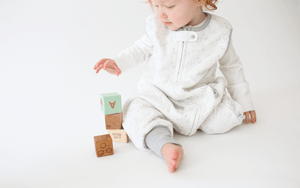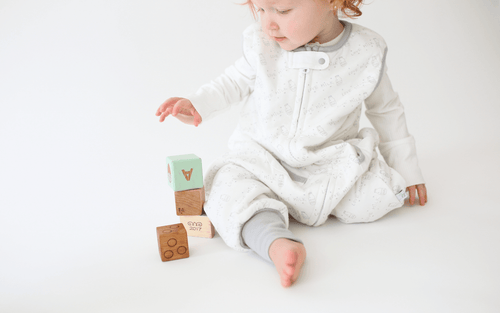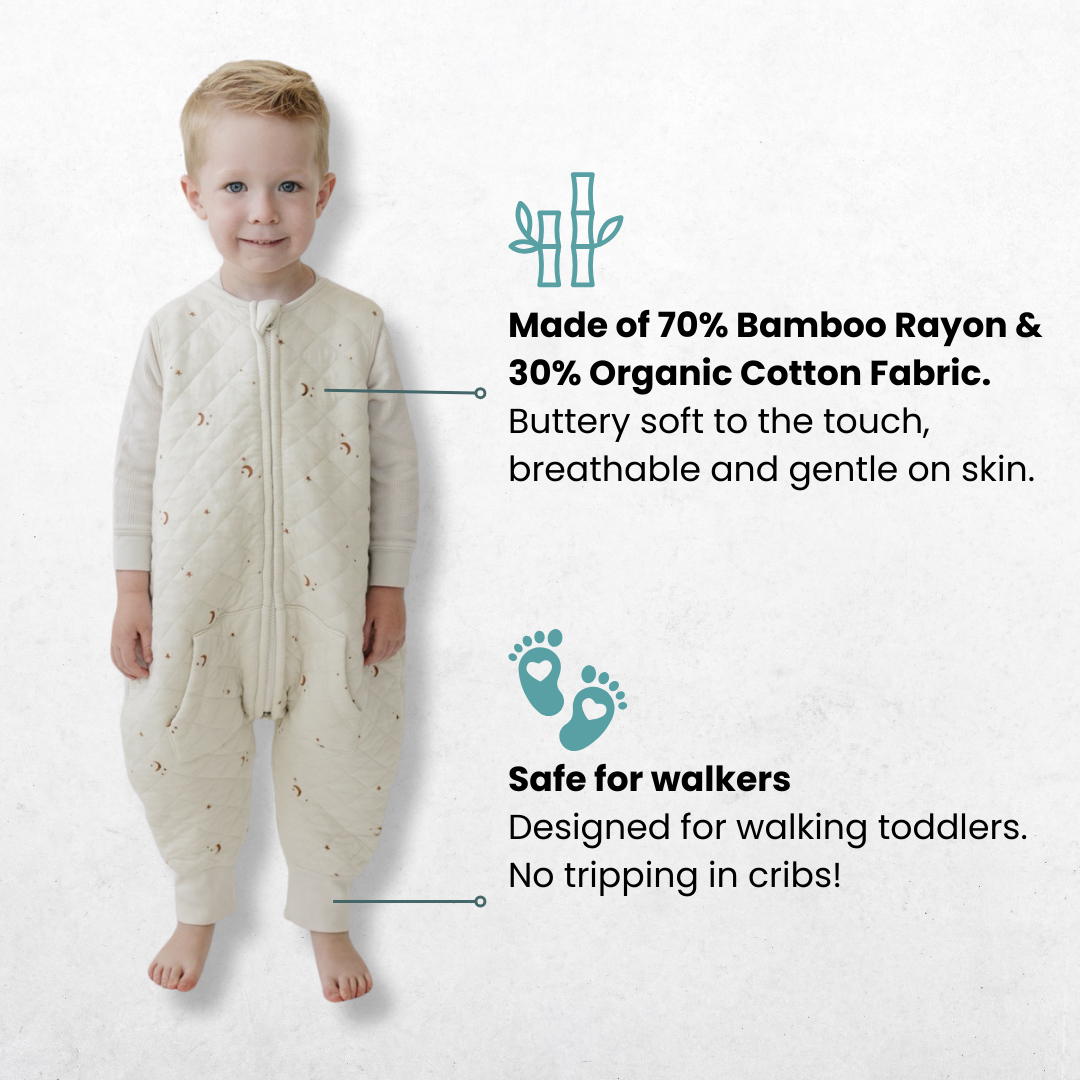5 Tips to Get Your Toddler To Sleep At Bedtime!
Guest contribution written by: Leann Latus founder of Tender Transitions
Toddlers need bedtime routines too
The toddler years are exhausting, but also the amazing time that you get to see your child’s personality grow. They’re more interactive, they say the funniest things, and steal your heart. However, often just as they’re coming into their uniqueness and developing a sense of autonomy, they’re resistance to sleep and bedtime increases.
Hi, I am Leann Latus, Sleep Coach and Owner of Tender Transitions Sleep Coaching. My team of sleep coaches help parents teach their children independent sleep skills so that they can sleep through the night.
You may notice that I wrote children, not babies. There is a misconception that sleep training is only for infants or babies, not toddlers. But, that isn’t true. We also work with families with toddlers and help families understand how sleep training toddlers works.
Why do toddlers struggle with sleep?
Maybe you didn’t have sleep struggles when your child was younger, but now that they hit the “terrible 2’s”, it’s all changed. Or maybe you thought that once you have kids, sleep is thrown out the window. I am sure you heard that “advice” at your baby shower.
I have hinted at one big reason that toddler’s struggle with sleep – they’re growing personalities and testing the boundaries of independence. Or how I prefer to call it, “I Do It” phase.
Their stronger opinions often result in an avoidance of sleep. You’ll start noticing an increase in stall tactics at the same time. The “one more story”, or “one more glass of water” request. Or my favorite – the “streak down the hall after a bath” tactic.
Being afraid of the dark and getting comfortable
Another toddler sleep struggle is the fear of the dark. Their imaginations are growing as well as their bodies. And with imagination comes scary monsters in the closet or the boogie man under the bed. As adults, we’re experienced enough to recognize that the dark isn’t inherently dangerous, (although a piece of Lego on the stairs can tell you another story). But for a toddler, there’s no history to draw on to assure them that they’re safe and secure after the lights go out.
And finally, the other huge sleep struggle that toddlers experience is the move from the familiar comfort of their crib to a big kid bed. Now, they have the freedom to just roll out of bed, slowly open the door, and check out what show mom is watching downstairs.
What next? How can you help your toddlers through these sleep hurdles? It sounds like it comes as a natural developmental stage, but there are several things you can do to help bedtime run more smoothly.
Tip 1 – Establish a Solid Bedtime Routine
This is tip number one for a reason! This is the fundamental step that will help with each of your toddler’s bedtime battles.
Despite their need to test boundaries, your toddlers crave the security of routine and consistency. They like to know what’s happening next. It gives them a sense of control. Your child is still trying to understand how things work in the world and if each night has different expectations, it can be really confusing for them.
Of course, we all know as parents, that things come up and sometimes your routine might have to shift a bit. But if you’re consistent much of the time, you’ll start noticing a steep decline in the bedtime protests.
Tip 2 – Avoid Natural Sleep Aids Such As Melatonin
I’m asked this question a lot, “Can I give my child melatonin to help him sleep better?”.
Melatonin is the natural hormone that you and your child release when your body is ready to wind down. It doesn’t make you fall asleep. It is just the signal to tell your body that it is time to sleep. In short, melatonin will not help your toddler sleep through the night.
It might help them get to sleep. But, it becomes a crutch to use. It doesn’t help your toddler learn and develop beneficial sleep skills that will help them fall asleep and stay asleep all night long.
Tip 3 – Don’t Minimize the Fear of the Dark
As toddlers mature, they develop a long memory and they have more life experiences. They’ve almost certainly fallen down at the playground or had a child tell them about monsters. These incidents make your toddler aware that there are things out there that can hurt them.
Don’t minimize this fear but acknowledge their emotions. Dismissing your toddler’s fears as irrational or unfounded isn’t helpful, so try to understand where their fear is coming from. Ask some questions during this fearful time to seek the source of the fear. Then you can address some of the misconceptions.
Plus, you can then start creating some positive associations with the dark. The dark is often the only time that they spend alone, so of course their imagination is peaked. Spend some time in the dark with them, create a fort, use flashlights for shadow puppets, or play flashlight hide and seek.
Tip 4 – Don’t Rush The Big Kid Bed
The transition to the big kid bed is a big one, not only for the toddler, but also for the parents. There is no longer anything keeping your toddler in their bed.
My first piece of advice is don’t rush it. Let your child stay in the familiar comforts of their crib as long as you can. The older the child is during the time of transitioning to a bed doesn’t correlate with it being tougher. Their age can help them understand and own the process more.
When it is time to make the transition, keep tip 1 in mind. Keep the rest of the bedtime routine consistent. There is no need to revamp your whole routine just because they have now transitioned to a toddler bed.
Tip 5 – Implement a Bedtime Routine Chart
You can start this tip right now! Make a fun chart for your child and hang it in a place where they can add stickers or checkmarks as they go through the bedtime routine. This will help them stay on track and have a little fun along the way.
Sleep is important for your toddler’s growth and development and their body is designed to ensure that they get this sleep. Sometimes they just need a little guidance and support to develop healthy sleeping skills. So, before running out to get the latest product or toddler sleep aid, consider reaching out to a sleep coach that will help identify a bedtime strategy that will create life-long sleepers.






















